Have you ever seen a colorful sunflower in a bustling garden and wondered what animals eat them? Our relationship with nature is an intimate one, as we not only enjoy the beauty of plants and flowers ourselves but often borrow from them too. Sunflowers are no exception; they are eaten by birds, insects, small mammals, livestock, and even humans! In this blog post we will explore these various groups of animals that love sunflower seeds as well as guidance on protecting your precious blossoms. Let’s dive right in to discover what eats sunflowers and explore why it’s so important to protect these vibrant-hued delights.
Are Sunflowers Hard to Grow?
The answer to this question depends on a few factors, such as the climate you live in and the amount of care you’re willing to give your sunflowers. Sunflowers thrive best in sunny spots with well-drained soil, so if your climate is cool or damp, it could be more challenging to get them started. However, even in less ideal conditions, sunflowers can still do quite well with some extra attention. [1]
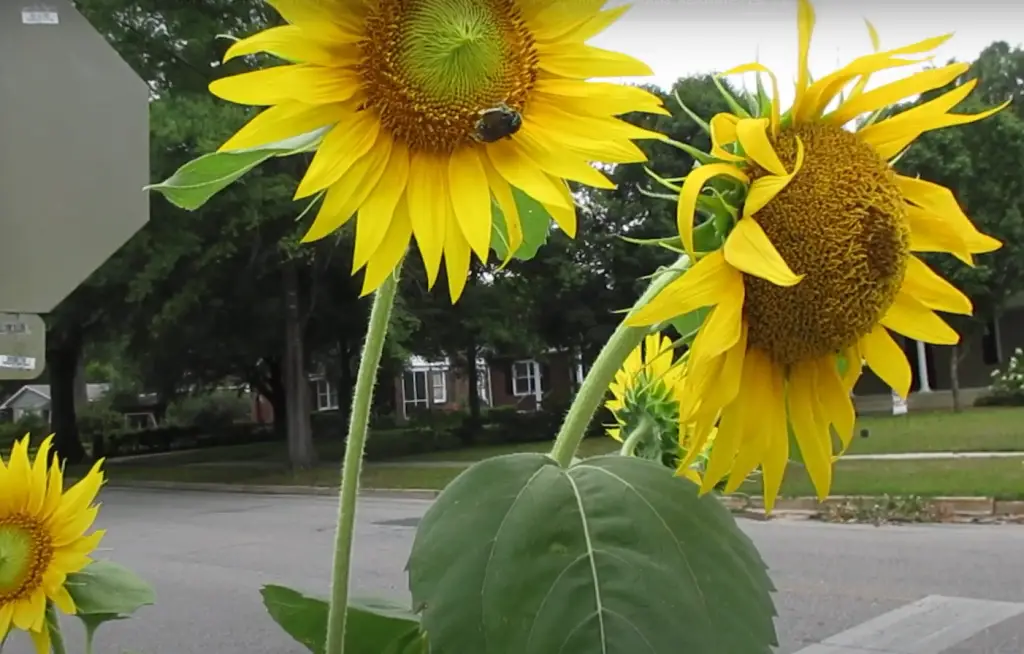
When it comes to taking care of your sunflowers, it’s important to make sure they are getting enough sunlight and water. Sunlight helps sunflowers grow tall and strong while water keeps their roots healthy and hydrated. Be sure to keep an eye out for any signs of pests or diseases that could be detrimental to your plants.
Do Sunflowers Suffer from Diseases And Why?
Sunflowers, just like any other plant, are susceptible to a range of diseases. Common sunflower diseases include fungal and bacterial infections, aphids infestation, and Downy mildew.
Fungal infection such as powdery mildew can be caused by too much water and humidity on the leaves or poor air circulation. Bacterial infections that produce spots on the petals may be caused by warm temperatures combined with wet weather. Aphid infestations can damage the flower heads of sunflowers causing them to become distorted and discolored. Downy mildew is a fungus-like disease that affects young plants during cool damp conditions in early spring and late fall. It causes yellowing of leaves and stunted growth. Sunflowers are also vulnerable to several virus diseases, such as sunflower mosaic virus, which causes distorted growth and discolored petals. [3]
To protect your sunflowers from disease, be sure to provide them with ideal growing conditions and inspect them regularly for signs of infestation or infection. If you spot any problems, take immediate action by removing the affected plants and treating the soil with an appropriate fungicide or insecticide. Also make sure to keep weeds in check as they can harbor pests and pathogens that can spread quickly among your sunflowers. Finally, practice crop rotation with other non-susceptible plants to minimize the risk of disease outbreaks in subsequent seasons. [4]
Why Do Animals Eat Sunflowers?
It’s clear that sunflowers are an incredibly healthy food choice for animals. Not only do they offer essential vitamins and minerals; but they also contain powerful antioxidants, fiber, and protein that can help keep animals energized and strong.
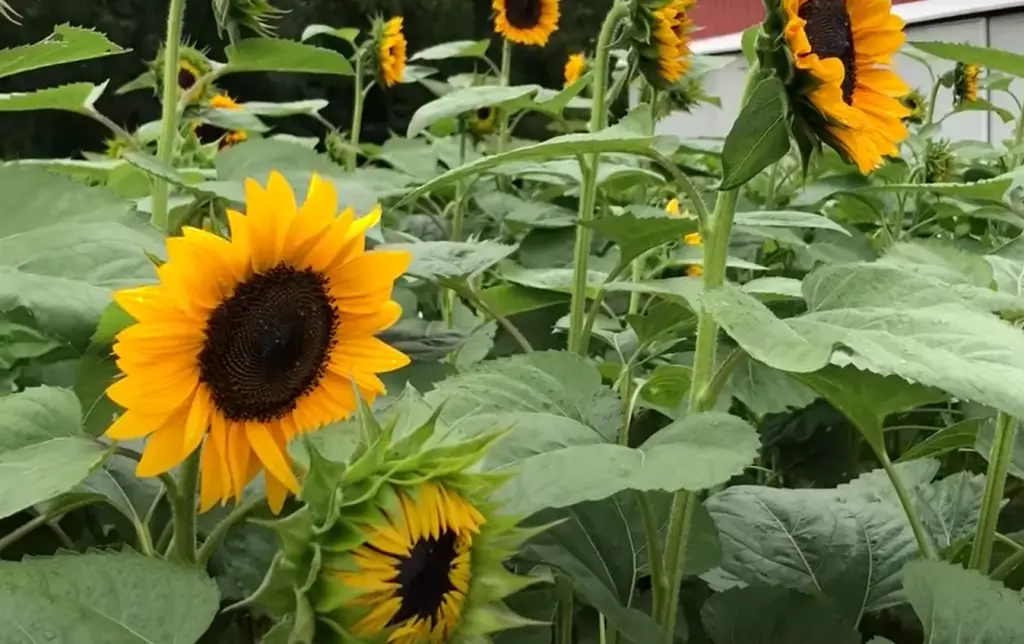
So if you spot some wild critters munching on sunflower seeds or petals, don’t worry – they’re just doing their part to stay healthy!
Sunflowers are a great source of antioxidants
Sunflower seeds and petals contain high amounts of powerful antioxidants like carotenoids, vitamin E, and polyphenols. These compounds help protect the body from damaging free radicals that can cause inflammation and disease.
Sunflowers provide essential nutrients
Not only are sunflower seeds filled with vitamins and minerals like magnesium, phosphorus, selenium, B-vitamins, zinc, iron, potassium, calcium and manganese. The leaves and petals even have higher levels of certain nutrients than what’s found in the seeds!
Filling fiber content
For animals trying to stay full for longer periods of time, sunflower seeds are a great choice as they contain a good amount of dietary fiber.
High-protein content
Sunflower seeds offer a good source of protein with about 6 grams per one-ounce serving size. This is especially important for animals that are trying to build or maintain muscle mass.
A healthier alternative to processed and junk foods
Sunflower seeds provide a much better energy boost than processed snacks like chips and candy bars, which can be full of unhealthy fats and sugars.
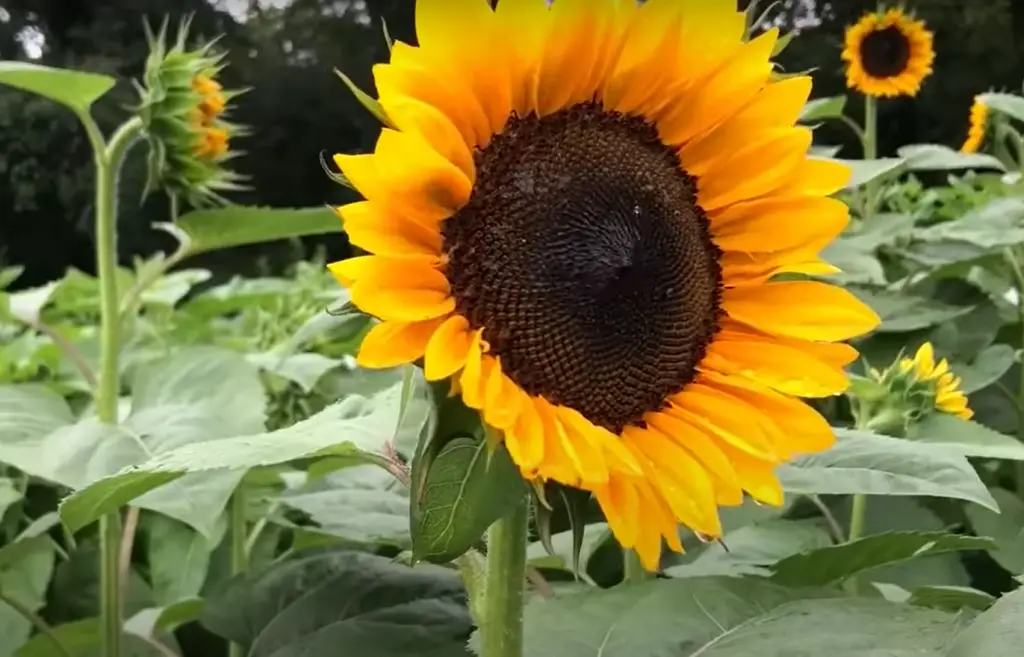
And since sunflowers are packed with all kinds of nutrients, eating them can help keep animals healthy and energized!
Tasty treat
Lastly, the flavor and crunchiness of sunflower seeds can make them a favorite snack for many animals. They offer a delicious, nutritious way to get essential vitamins and minerals! [5]
The Most Nutritious Sunflower Varieties For Animals
- Black Oil Sunflower Seeds: These sunflower varieties are especially popular as they have a higher fat content that can help animals stay full for longer. They also contain more vitamins, minerals, and antioxidants than other types of sunflower seeds.
- Sunflower Shoots: The young stalks and leaves of the sunflower plant are highly nutritious for animals, packed with essential nutrients like vitamin C, folate, potassium, calcium and magnesium.
- Hulled Sunflower Seeds: These varieties are less crunchy than black oil sunflowers but still offer plenty of nutrition thanks to their higher concentrations of B-vitamins, zinc and selenium.
- Sunflower Petals: Not only do the petals look beautiful in a garden or yard; but they also contain a range of vitamins and minerals. They are great for adding color, texture, and nutrition to salads or other dishes. [6]
What Animals Eat Sunflowers?
Sunflowers are a popular food source for many animals, both wild and domestic. Among the most popular ones are cows, deer, goats, raccoons, bears, squirrels, birds, rabbits, chipmunks, aphids, sunflower beetles.
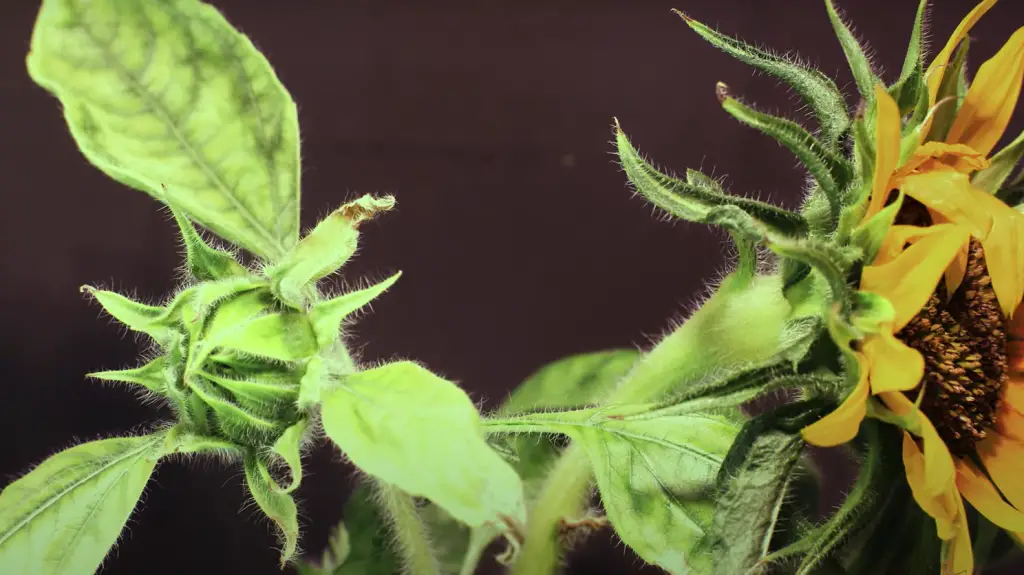
Let’s take a closer look at each “pest” and understand why they all like sunflowers so much.
Cows
Cows have several reasons for eating sunflowers. The main reason is that they are a nutritious and tasty food source with high levels of protein, fiber, fat, and carbohydrates.
Additionally, since the flowers are large and can be seen above the grasses or crops in a pasture, cows may eat them out of curiosity or even simply because they are available. Lastly, sunflowers attract bees which give cows some extra nutrition from pollen as well as entertainment from watching the buzzing insects. All in all, cows enjoy the nutritional and entertainment benefits of eating sunflowers.Goats
They are known to be opportunistic eaters, meaning they will consume whatever is available. Sunflowers are one of the many plants that goats tend to find appealing. Sunflower seeds have a high fat content which provides goats with much needed energy, and sunflower leaves also contain protein and other vitamins and minerals that can benefit a goat’s health. Sunflowers can also help prevent parasites in goats due to their antifungal properties. Additionally, some farmers use sunflowers as an inexpensive way to feed their goats instead of buying expensive grain-based feed for them.
Deers
Deer have an interesting relationship with sunflowers. While they may not be the preferred food for deer, they do eat them from time to time when their other food sources are low. Sunflower seeds contain high amounts of proteins and carbohydrates which can provide much-needed nutrition during harsh seasons or times of drought.
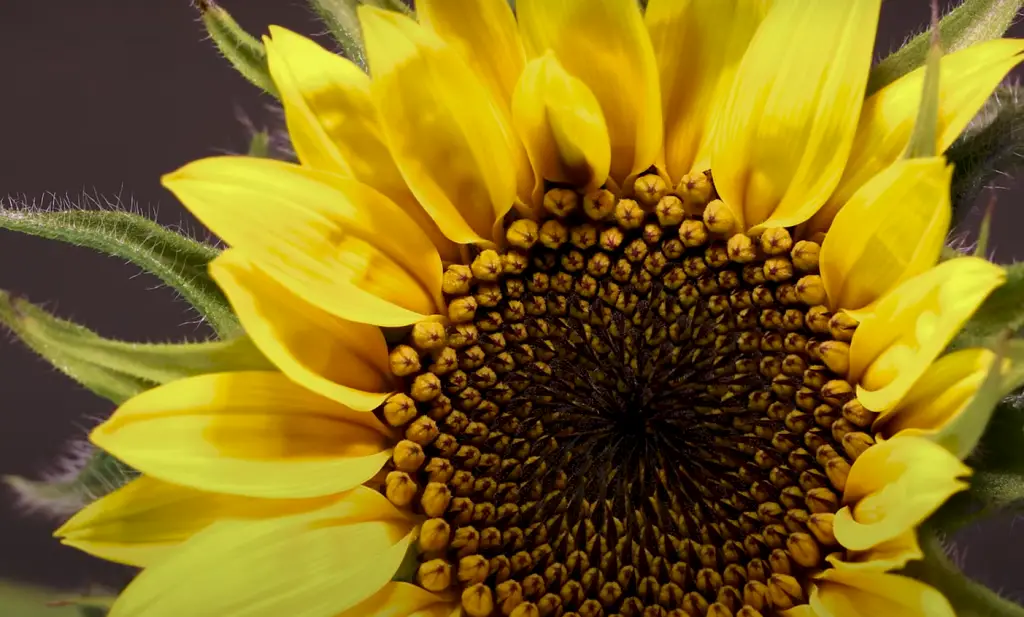
Sunflower leaves and stems are also edible although not as tasty as the seeds themselves. Deer may also consume sunflowers if they need additional fiber in their diet, as this too can be found in the plant. Lastly, some deer will eat sunflowers if there is nothing else available; however, these plants should never be relied upon as a main source of sustenance for deer. [7]
Raccoons
These animals are known for their curious and mischievous behavior, which can include eating sunflowers. The sweet flavor of sunflower seeds is irresistible to raccoons. Raccoons also find it easy to access the sweet and tasty edible parts of the sunflower because they are able to reach them with their dexterous front paws.
If you’re trying to deter raccoons from snacking on your sunflowers, there are some things you can do. Setting up motion-activated lights or sprinklers can frighten away raccoons, and you should also be sure to secure any garbage cans or pet food that might be accessible to them. Doing so will help keep raccoons out of your garden and away from your sunflowers!
Raccoons are wild animals, and it is illegal to capture or kill them without the proper permits. While these animals may seem like pests, they play an important role in helping maintain a healthy ecosystem by eating insects and other small creaturesBear
They eat sunflowers not only for their nutritional value, but also for the entertainment they provide. Sunflower seeds have a high caloric and protein content that makes them a good source of energy for bears. They also enjoy snacking on them because of their sweet taste. Some believe that they are attracted to the bright yellow color of the petals as well, which is why many people hang bird feeders with sunflowers in them to attract wild bears. Additionally, sunflower heads can act as toys for bears, providing hours of entertainment while they pick out every last seed.
Squirrels
The taste of sunflower seeds is often preferred by squirrels over other types of food, which makes it an easy choice for them when selecting what to snack on. Additionally, sunflowers grow quickly and are widely available in nature, making them a convenient option for hungry squirrels looking for a quick meal.
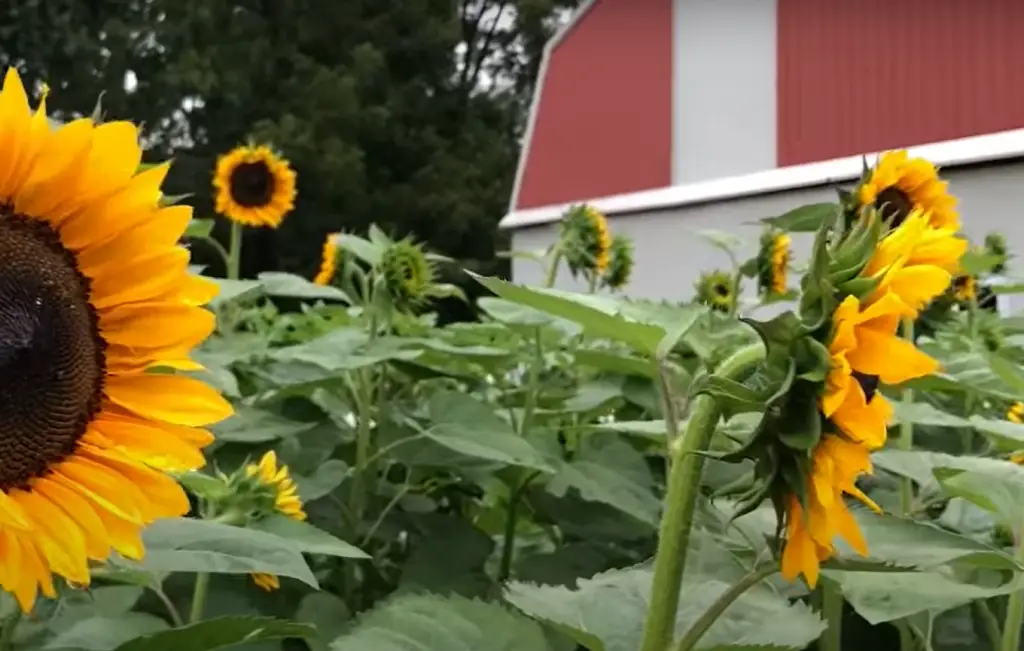
In addition to providing nutrition, the bright yellow petals also provide some visual stimulation that can attract curious squirrels. All these factors combined make sunflowers an ideal snack choice for many squirrels in the wild.
Birds
Sunflowers are a popular food for birds due to their high nutrient content. Sunflowers contain essential fatty acids, vitamins, minerals, and proteins that provide the necessary nutrition for maintaining health in many species of birds. Not only do sunflowers offer nutritional value, they also serve as an important source of energy when other sources of food may not be available. Additionally, the large seeds contained within sunflower heads make them easily accessible and attractive to birds of all sizes.
Another reason why birds are attracted to sunflowers is because they act as a natural shelter from predators and inclement weather. Sunflower plants often grow tall enough to give smaller birds safe refuge from potential attackers while still being close enough to the ground so that they can take advantage of the edible seeds. Sunflowers are also known to provide a safe place for breeding during mating season, offering both protection and easy access to food. [8]
Rabbits
Rabbits are herbivores, meaning they consume mostly plant matter. Sunflowers have more to offer than just nutrition. The flowers themselves can help keep your pet’s coat healthy and shiny due to their high levels of fatty acids like linoleic acid. Additionally, sunflowers are rich in antioxidants which can be beneficial for rabbits who may be prone to certain diseases or illnesses. These antioxidants can help reduce inflammation in the body which is beneficial when trying to combat sicknesses like arthritis.
Chipmunks
Chipmunks are small, omnivorous rodents that thrive on a variety of seeds and nuts. Sunflowers are an important food source for chipmunks due to their high fat content and the amount of nutrition they provide. Sunflower seeds have essential fatty acids, magnesium, phosphorus, zinc, iron, copper and manganese which are all necessary for healthy growth. In addition to providing nutrition, sunflower seeds offer chipmunks some protection against predators while they feed, as the dense core of the flower head provides excellent cover from birds of prey and other animals that might hunt them down. Furthermore, because the seed heads contain so many individual seeds spread out over a large area, chipmunks can feed quickly without having to travel far, making it an ideal snack. Sunflower seeds are also easy to store and can provide chipmunks with a reliable food source that lasts throughout the winter months when other food sources become scarce.
Aphids
Aphids feed on the sap of sunflower plants, which is found in its stems, leaves and flowers. They use their long straw-like mouthparts to puncture through the plant’s outer layer and suck out the sweet juices inside. The nutrients in this sap provide aphids with energy and aid in reproduction. Sunflowers are a preferred food source for many species of aphids due to their abundance of nectar-rich flowers that attract them in droves during spring and summer months. Aphids may also be drawn to sunflower plants because they offer protection from predators such as birds or spiders. Additionally, some species of aphids have specific preferences for certain varieties or colors of sunflower blossoms. By feeding on sunflowers, aphids can thrive and reproduce quickly, often overwhelming entire gardens in short periods of time.
Sunflower beetles
These are a type of flower beetle that feed on the pollen and nectar of sunflowers. The larvae feed on the flowers, damaging them in the process. Sunflower beetles have evolved to specialize in sunflower feeding because it provides an ample food source that is relatively easy to access. By eating sunflowers, these beetles help pollinate plants and spread their seeds. Sunflower beetles also provide a valuable food source for other insects, birds, lizards, and small mammals. Additionally, these beetles help keep sunflowers healthy by aiding in pest control and keeping fungal diseases at bay. Sunflowers that receive proper pollination produce larger seed heads with more edible seeds – a benefit for both humans and wildlife alike! [9]
How to Keep Animals Away From Sunflowers?
Following these tips will help you ensure your sunflower patch stays safe from animal intruders. With a bit of regular care and maintenance, you can enjoy beautiful blooms without having to worry about pesky critters.
- Plant sunflowers in an area that is difficult for animals to access. Consider using fencing or other barriers around your garden. Make sure the fence is tall enough and secure enough to keep out larger creatures such as deer and rabbits.
- Repel animals from your sunflower patch with natural odors, like dried blood meal spread over the soil or planting garlic near the flowers. You can also use synthetic sprays such as predator urine or coyote urine, which mimic the scent of a predator and will often scare away smaller animals like squirrels and cats.
- Use motion-activated devices such as sprinkler systems, lights, or ultrasonic sound emitters to deter animals from coming close to your valuable sunflowers.
- Install a netting or wire mesh over your sunflower patch, to prevent birds from stealing the seeds or perching on the flower heads and causing damage.
- Regularly check for signs of animal activity in your garden, such as nibbled leaves, tracks, droppings, and burrows and take action where appropriate. If you’re able to identify the type of animals that are visiting your garden then you can adjust your strategies accordingly.
- Plant flowers in a variety of colors. This will help discourage animals from eating them as they don’t usually like bright hues like orange and yellow.
- Ensure you regularly water and fertilize your sunflowers to help them stay healthy and attractive. Healthy plants are more likely to resist pests and diseases, which in turn will keep animals away from them. [10]
Why Is It Critical to Protect Sunflowers from Pests and Eaters?
Sunflowers are an important part of nature and agriculture, providing food, nutrition, and beauty to the world. Unfortunately, they are also vulnerable to pests and eaters that can cause significant damage. Protecting sunflowers from these destructive forces is critical for their long-term survival and health.
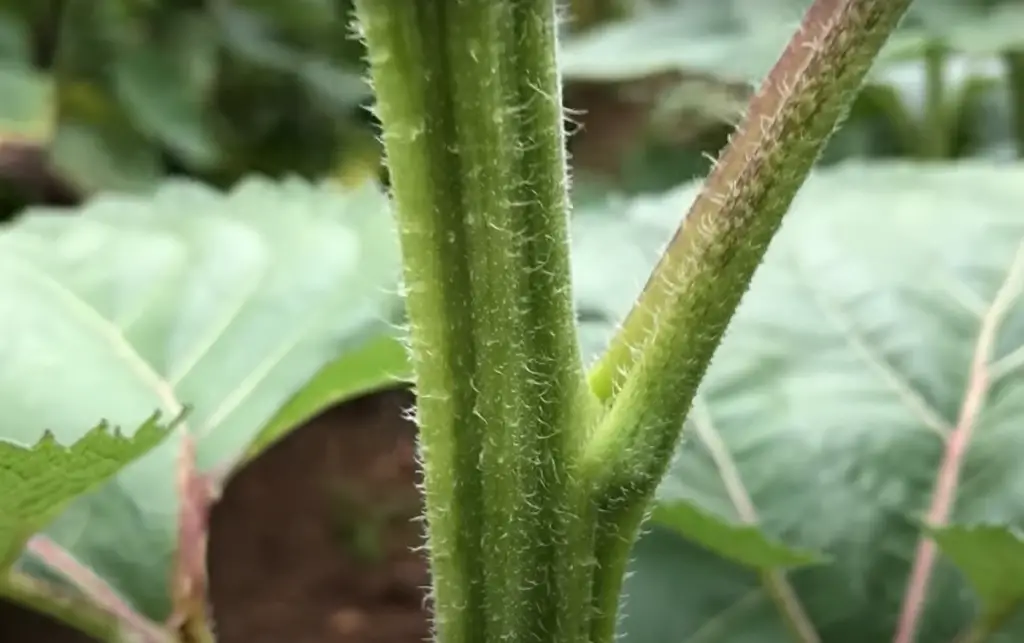
The most common threats to sunflower plants include a variety of insects such as aphids, mites, grasshoppers, beetles, thrips, caterpillars and leaf miners. These pests feed on the plant’s leaves or flowers, causing severe damage that can lead to reduced crop yields and quality. Additionally, birds such as crows can decimate entire fields of sunflowers by eating their seeds or flower heads before the plant can produce viable seed.
To protect sunflowers from pests and eaters, growers should use integrated pest management techniques that include scouting for signs of damage, monitoring populations of destructive insects, and using appropriate cultural practices such as crop rotation to reduce the likelihood of infestations. Chemical insecticides and fungicides may be used when necessary but should be applied judiciously. Additionally, bird netting and other physical barriers can be effective in deterring some avian predators.
By implementing these protection strategies, growers can ensure their sunflower crops remain healthy and productive for years to come. Sunflowers provide vital benefits to people around the world so it is important to take steps to preserve them against threats like pests and eaters.
FAQs
What are sunflower predators?
These are animals or insects that feed on and damage sunflower plants. Common predators include deer, rabbits, groundhogs, voles, birds, chipmunks, squirrels and aphids. In some cases, these pests can be managed with the help of organic pest control methods such as companion planting or trapping methods. If you have questions about organic pest control methods for your particular region or garden, please consult a local specialist for advice.
Do monkeys eat sunflowers?
Yes, monkeys do eat sunflowers. Sunflower seeds are especially popular snacks for many of the world’s primates. Monkeys have been known to pull apart the heads of sunflowers and pick out the seeds when they get a chance. In addition, some species of monkeys such as capuchin and spider monkeys may break open the husks of larger sunflower seeds in order to eat them. Sunflower leaves and petals can also be eaten by some species of monkey. Monkeys are also able to benefit from the additional nutrients found in these parts of the sunflower plant.
Do cats eat sunflowers?
Yes, cats can eat sunflower seeds! However, it is important to note that whole sunflower seeds may be too hard for some cats to chew or digest properly. If you choose to offer your cat sunflowers, opt for roasted and shelled varieties instead. Additionally, always monitor your cat while they enjoy their treats to ensure they do not choke on the seeds.
Are sunflowers toxic to some animals?
Sunflowers are not generally toxic to animals but they can cause digestive issues if eaten in large quantities. Sunflower plants contain toxins that act as a natural defense mechanism against pests and disease, so if an animal eats too much of the plant it may experience some ill effects. Some birds, such as doves and quail, are particularly sensitive to the toxin and should be monitored when consuming sunflowers from the garden. However, most animals will not suffer any adverse reactions from eating sunflowers.
Useful Video: My sunflowers – plus a tip – how to keep squirrels from eating sunflowers
Conclusion
All in all, sunflowers are a beloved and bountiful crop that are used for many purposes including food. Unfortunately, they can be a target for animals such as deer, groundhogs, rabbits and birds who are drawn to the sweet taste of sunflower seeds. Remember that a fence or netting makes an excellent deterrent for most animals, so take action to protect your plants! There are also organic repellents such as chili powder or cayenne pepper that may help to deter some animals. Ultimately, understanding why these animals enjoy munching on sunflowers can be helpful in giving you the knowledge to prevent them from eating your prized plants. By implementing a few simple precautions and techniques listed here today, you can keep your sunflower garden safe and secure free from unwelcome visitors.
References:
- https://www.hgtv.com/outdoors/flowers-and-plants/flowers/growing-sunflowers-when-to-plant-and-how-to-grow-sunflowers
- https://gilmour.com/growing-sunflowers
- https://plantvillage.psu.edu/topics/sunflower/infos
- https://plantaddicts.com/sunflower-diseases/
- https://gardeninghood.com/animals-that-eat-sunflowers/
- https://gardenerspath.com/plants/flowers/best-sunflower-varieties/
- https://seedsandgrain.com/what-animals-eat-sunflowers/
- https://pestpointers.com/animals-that-love-eating-sunflowers-how-to-stop-them/
- https://wildlifeinformer.com/animals-that-eat-sunflowers/
- https://gardenerspath.com/plants/flowers/protect-sunflowers-birds-squirrels/







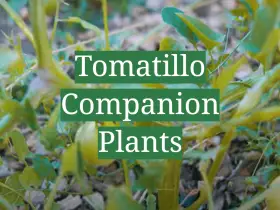

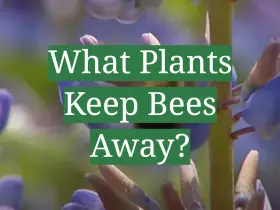
Leave a Reply
View Comments